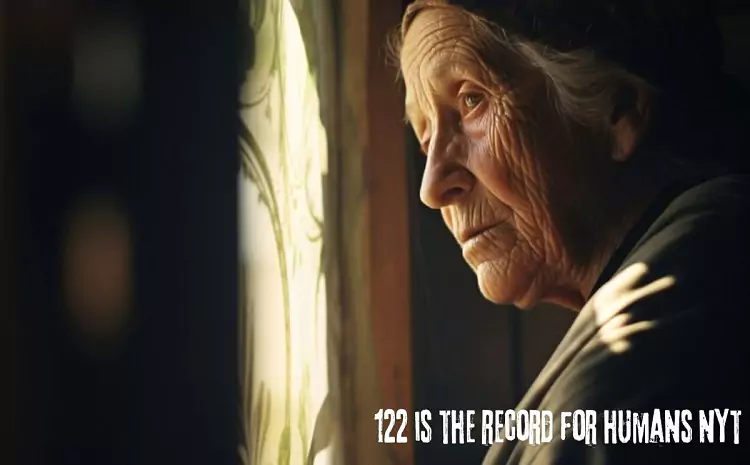When we talk about longevity records, reaching 122 years old stands as a remarkable feat. The phrase “122 is record for humans” often appears in crossword puzzles, news articles, and research discussions. It refers to the verified record age that a human has lived, documented by various sources, including the New York Times (NYT). This article will explore the significance of this age, how it became the official record, and what it means for the future of human longevity.
Key Takeaways
- 122 years is the highest verified age that a human has lived.
- Jeanne Calment holds this record, living from 1875 to 1997.
- There is ongoing debate about whether humans can live beyond 115 years.
What is the Meaning Behind “122 is Record for Humans” in NYT?
The New York Times (NYT) has frequently reported on the record age for human longevity. When crossword clues like “122 is a record one for humans” or “122 is the highest known one for a human” appear, they are referencing this exceptional lifespan.
The record age of 122 years belongs to Jeanne Calment, a French woman who lived from 1875 to 1997. Her age has been widely verified and remains unbeaten to this day.
Why is 122 a Milestone?
The age of 122 is considered a milestone because it’s not only the oldest recorded human lifespan but also a benchmark in aging research. Scientists have been curious about whether this age limit is the peak for human life expectancy.
| Fact | Details |
|---|---|
| Record Holder | Jeanne Calment |
| Year of Birth | 1875 |
| Year of Death | 1997 |
| Total Age | 122 years and 164 days |
| Verified By | Multiple organizations and researchers |
Can Humans Live Beyond 122 Years?
Debate: “Humans Will Never Get Older Than 115”
There’s a long-standing debate on whether humans can naturally live beyond 115 years. Some researchers suggest that 115 is the natural limit of human longevity, citing genetic and biological constraints. However, Jeanne Calment’s life, extending to 122 years, challenges this notion.
Factors Affecting Human Longevity
The factors that determine how long a person can live are complex and varied. Here are a few:
- Genetics: Strong genetic makeup can contribute to longer lifespans.
- Lifestyle Choices: Diet, exercise, and avoiding harmful habits like smoking can impact longevity.
- Environment: Living conditions, healthcare access, and social environment play significant roles.
- Medical Advances: Innovations in medicine could potentially push the boundaries of human lifespan.
Understanding Human Longevity Records
Why 122 is a Record for Humans Crossword Clue?
The New York Times often uses phrases like “122 is a record for humans crossword clue” in its crosswords. This refers to the unique nature of this record, which remains unmatched in documented history.
Age Milestones in History
| Age Milestone | Notable Individuals | Verification |
|---|---|---|
| 115 Years | Many documented cases | Verified by local and national authorities |
| 122 Years | Jeanne Calment | Verified through multiple independent sources |
| Beyond 122 Years | No verified cases | Still under research and debate |
Insights from New York Times on Human Longevity
The New York Times (NYT) has published numerous articles discussing human longevity. The newspaper often highlights how Jeanne Calment’s life defied expectations and opened up new discussions on the potential for humans to live even longer.
What the NYT Says About “122 is the Record for Humans”?
The NYT uses Jeanne Calment’s story as a central point in its articles on longevity. With headlines such as “122 is the highest known one for a human crossword clue” and reports on the difficulties in verifying such records, the NYT keeps the public informed about new research and discoveries.
Looking Forward: Is 122 Really the Limit?
There’s still much to explore when it comes to the limits of human life. With continued advancements in genetics, healthcare, and lifestyle management, it’s possible that new records could be set in the future.
Final Thoughts
While 122 years may currently stand as the official record, ongoing research might one day redefine what’s considered the limit for human life expectancy. For now, Jeanne Calment’s legacy as the world’s oldest verified person remains intact, sparking curiosity and hope for what humans might achieve in terms of longevity.
Summary of Key Points
- 122 years is the longest verified human lifespan, set by Jeanne Calment.
- This record is frequently mentioned in publications like the New York Times (NYT).
- There is debate about whether humans can live beyond 115 years.
- Lifestyle, genetics, and healthcare are key factors in longevity.
Understanding these records helps us appreciate the boundaries and possibilities of human life. Perhaps, one day, we’ll see someone surpass this legendary 122-year mark. Until then, this record continues to captivate researchers, crossword enthusiasts, and the general public alike.

